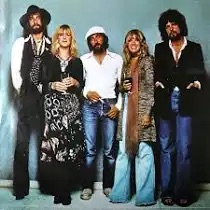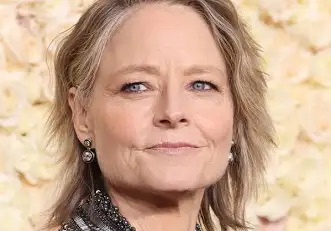Barbra Streisand, born on April 24, 1942, in Brooklyn, New York, stands as one of the most iconic figures in American entertainment. Her career, spanning over six decades, encompasses achievements in music, film, and theater, showcasing her extraordinary versatility and talent.
**Early Life and Career Beginnings**
Growing up in a modest Brooklyn neighborhood, Streisand was drawn to the performing arts from an early age. Her career began with small roles on Broadway, where her powerful voice and unique style quickly set her apart. Her breakthrough came with the 1962 Broadway musical “I Can Get It for You Wholesale,” where she garnered attention for her standout performance.
**Rise to Stardom**
Streisand’s transition to film was equally remarkable. Her debut film role in “Funny Girl” (1968) earned her an Academy Award for Best Actress, making her one of the youngest winners in that category. Her portrayal of Fanny Brice, a role she had also performed on Broadway, showcased her dramatic range and singing prowess. The success of “Funny Girl” solidified her status as a major Hollywood star.
Throughout the 1970s and 1980s, Streisand continued to dominate both music and film. Her albums, including “The Way We Were” and “Evergreen,” became major hits, with the latter winning her an Academy Award for Best Original Song. Her film roles in “A Star Is Born” (1976) and “Yentl” (1983) further established her as a multifaceted artist capable of both acting and directing.
**Musical and Artistic Innovation**
Streisand’s musical career is marked by her ability to cross genres and innovate. Her voice, often described as one of the greatest of the 20th century, has graced everything from Broadway show tunes to jazz standards. She has received numerous Grammy Awards, including a Grammy Legend Award, and has sold over 150 million records worldwide.
In addition to her music and film achievements, Streisand is known for her activism and philanthropic efforts. She has supported various causes, including women’s rights, environmental issues, and education. Her contributions to charity and social causes reflect her commitment to making a difference beyond her artistic achievements.
**Legacy and Impact**
Barbra Streisand’s impact on the entertainment industry is profound. Her ability to seamlessly blend musical talent with acting prowess has set a high standard for performers across generations. Her influence extends beyond her own work, as she has paved the way for future artists in both fields.
Streisand’s career, marked by an array of awards including multiple Emmys, Grammys, and a Tony Award, demonstrates her unparalleled versatility and enduring appeal. As she continues to work and inspire, Barbra Streisand remains a towering figure in American culture, celebrated for her extraordinary contributions to the arts.
**Barbra Streisand: The Quintessential American Entertainer**
Barbra Streisand, born on April 24, 1942, in Brooklyn, New York, has achieved an unprecedented level of success in the entertainment industry, marking her as one of the most versatile and influential figures in American culture. Her career, spanning over six decades, is a testament to her extraordinary talent, unwavering dedication, and groundbreaking achievements in music, film, and theater.
**Early Life and Influences**
Streisand was born to a modest Jewish family in the Flatbush neighborhood of Brooklyn. Her mother, Diana, was a soprano and a pianist, and her father, Emanuel, was a schoolteacher and a part-time singer. Although Emanuel passed away when Streisand was just 15 months old, his influence on her early life was profound. Streisand’s mother’s passion for music instilled in her a love for performance, and by the age of nine, Streisand was already participating in local talent shows and community theater.
As a teenager, Streisand attended Erasmus Hall High School, where she excelled in the arts and participated in various school productions. After high school, she worked odd jobs to support herself while pursuing her dream of becoming a performer. Her early gigs included singing in nightclubs and appearing in off-Broadway shows, where she honed her craft and developed her distinctive voice and stage presence.
**Breakthrough and Rise to Stardom**
Streisand’s big break came in 1962 when she was cast in the Broadway musical “I Can Get It for You Wholesale.” Her performance was met with critical acclaim, and it wasn’t long before she became a sought-after star. Her talent caught the attention of movie producers, leading to her film debut in “Funny Girl” (1968). Her portrayal of Fanny Brice was groundbreaking, earning her an Academy Award for Best Actress and establishing her as a major Hollywood star.
“Funny Girl” was a commercial and critical success, but Streisand did not rest on her laurels. She continued to explore diverse roles and genres, solidifying her status as a multi-talented artist. Her follow-up film, “Hello, Dolly!” (1969), showcased her range as both an actress and a singer, while her album releases, including “The Barbra Streisand Album” (1963), won her numerous accolades and cemented her position in the music industry.
**Music and Film Career**
Streisand’s career in music is characterized by her exceptional vocal range and ability to traverse multiple genres. Her albums, such as “The Way We Were” (1974) and “Guilty” (1980), became cultural touchstones, and she consistently topped the charts with her singles. Her voice, often described as powerful and emotive, earned her multiple Grammy Awards, including the prestigious Grammy Legend Award.
In film, Streisand continued to innovate and experiment with different roles and projects. “A Star Is Born” (1976) was a notable highlight, where she not only acted but also contributed to the film’s soundtrack. The album’s hit single, “Evergreen,” won an Academy Award for Best Original Song and further demonstrated her ability to excel across multiple artistic domains. Her directorial debut, “Yentl” (1983), was another significant milestone, as she became one of the few women to helm a major Hollywood film, receiving both critical acclaim and commercial success.
Streisand’s other notable films include “The Prince of Tides” (1991) and “The Mirror Has Two Faces” (1996), both of which showcased her talent for directing and acting. Her work in these films not only reinforced her status as a leading lady but also highlighted her ability to handle complex, nuanced characters.
**Activism and Philanthropy**
Beyond her artistic achievements, Barbra Streisand is known for her commitment to social and political causes. Her activism spans various issues, including women’s rights, environmental conservation, and education. Streisand has used her platform to advocate for change, often leveraging her celebrity status to raise awareness and support for important causes.
One of her notable contributions is the Barbra Streisand Foundation, established in 1986. The foundation supports numerous charitable organizations and initiatives, focusing on issues such as civil rights, environmental sustainability, and health care. Through her philanthropy, Streisand has made a significant impact on both a national and global scale.
**Personal Life and Legacy**
Streisand’s personal life has been marked by her relationships and family. She was married to actor Elliott Gould from 1963 to 1971, with whom she had a son, Jason Gould, who has also pursued a career in entertainment. In 1998, she married actor James Brolin, and their relationship has been a source of support and stability throughout her career.
Barbra Streisand’s legacy is defined by her exceptional contributions to the arts and her influence on the entertainment industry. Her career has not only set new standards for performance but also inspired countless artists and performers. With numerous awards, including multiple Emmys, Grammys, and Tonys, Streisand’s impact on American culture is profound and enduring.
As she continues to work and perform, Barbra Streisand remains a towering figure in the world of entertainment. Her remarkable talent, unwavering dedication, and commitment to social causes ensure that her legacy will continue to inspire future generations of artists and activists.




